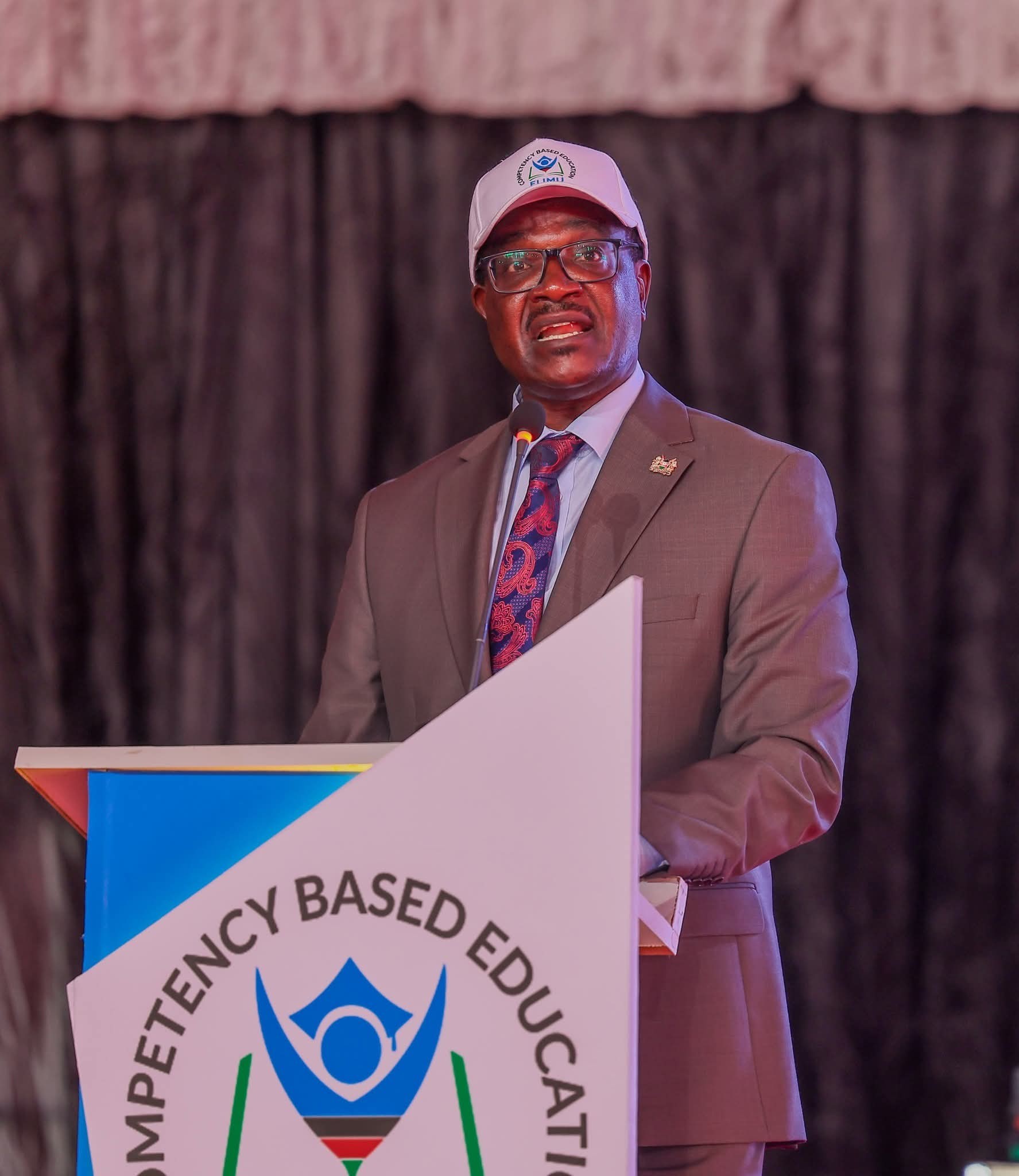Education Ministry Highlights Education Stakeholders’ Recommendations During CBE Forum
The Ministry of Education has received a summary of the report from county stakeholder dialogues regarding Competency Based Education (CBE) conducted in 2025.
The report was presented during The National Conversation on CBE, which took place on April 24, 2025, in Nairobi. This conversation included educators and pertinent ministry officials who operate at the grassroots level in the execution of the curriculum.
Speaking at the commencement of the event, Cabinet Secretary for Education Julius Migos Ogamba stated that the county dialogues were intended to inform stakeholders about the status of CBE implementation and to provide a platform for stakeholders’ involvement in the validation of transition guidelines from Junior School to Senior School.
The matters raised during the County Dialogues 2025 include a national readiness audit, which encompasses an assessment of senior schools and their preparedness for implementing educational pathways.
CS Ogamba indicated that the issue has been addressed; the government has conducted a comprehensive assessment to facilitate a smooth transition for Grade 9 learners into senior secondary school. This year, the Ministry of Education will construct 1,600 laboratories for schools lacking such facilities, which will be completed by the end of the year.
The selection process for Grade 9 students is scheduled to commence on May 20, following the students’ completion of the Kenya Junior Secondary Education Assessment (KJSEA).
“I urge all of you – particularly teachers, parents, and guardians – to adequately guide our Grade 9 candidates as they begin selecting their preferred Senior Schools. This exercise will commence on May 20, 2025,” the Cabinet Secretary stated.
The stakeholders have also advocated for capacity building; the Ministry of Education has initiated infrastructure mapping, prioritized the distribution of STEM equipment, and ongoing training of teachers in STEM is being provided through CEMASTEA.
The stakeholders additionally called for the stabilization and localization of the curriculum. They urged the government to minimize frequent reviews and to tailor content to enhance its local relevance.
Prof. Charles Ochieng’ Ong’ondo, Chief Executive Officer (CEO) at the Kenya Institute of Curriculum Development (KICD), indicated that they have completed the rationalization of the curriculum. The government has also developed career guidelines, which are now ready for dissemination.
Teaching and learning materials for the rationalized areas are likewise prepared for distribution. The KICD is also planning to conduct a needs assessment within the financial year 2024/2025.
The Ministry of Education is relying on local entities and television for the empowerment of all education stakeholders; it has also translated guidelines for parental engagement into Kiswahili.
Regarding assistive materials and infrastructure, the government has established a factory for manufacturing assistive devices at the Kenya Institute of Special Education (KISE).
The stakeholders also expressed concerns regarding assessment integrity and fairness; the government has instituted standardized grading, ongoing training of teachers for school-based assessment (SBA), updates of scores, and record values, while schools have utilized Parents’ Annual General Meetings for sensitization.
The government has also prepared career guidance materials for junior and pre-vocational schools, and these are now ready for distribution.
During his concluding remarks, the Cabinet Secretary stated that the primary takeaway from the discussion has been a resolution to offer mathematics as a mandatory subject for all students in Senior School.
“We have established a technical team that will collaborate with the experts from the KICD to ascertain the modalities for offering mathematics at the Senior School level,” he remarked.
Ogamba indicated that the ministry will also promptly initiate consultations on strategies to ensure a robust mechanism is established to facilitate reentry and assessments for private candidates, thereby ensuring they complete their basic education.
The Ministry of Education continues to oversee fee guidelines through audits conducted by the schools audit department and the Office of the Auditor-General. It is also providing support for school fees through CDF bursaries, the Elimu Scholarship, and various other programs.
